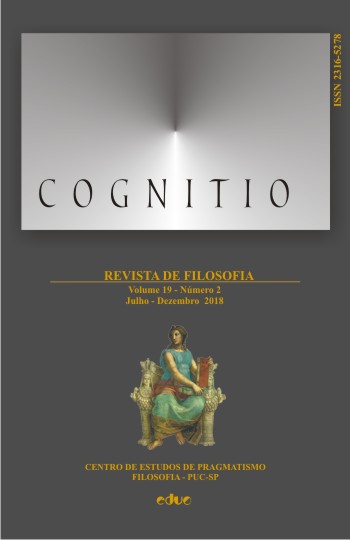All is not Vanity: William James versus Ernest Renan
DOI:
https://doi.org/10.23925/2316-5278.2018v19i2p242-257Keywords:
Carlyle, Ethics, Protestantism, Renan, Strenuous moodAbstract
In James’ work, there is an explicit reaction against Renan’s insincerity and vanity as the dominant moral tone. The way in which James judges Renan in particular, and the Latin spirit in general, is related to an early identification with the German spirit through his Protestant background. Within this framework, we will see that through Carlyle’s figure, James opposes the objective moral of work to Renan’s interior gnostic sensitivity. Since there exists an overt link between Carlyle and Calvinism, the component of Protestant ethics in James’ proposal becomes manifest. Consequently, the purpose of this paper is to show that strenuous mood, as a characteristic of courage and manhood, has a Protestant tone.Downloads
Published
2019-02-01
How to Cite
Jatuff, J. (2019). All is not Vanity: William James versus Ernest Renan. Cognitio: Revista De Filosofia, 19(2), 242–257. https://doi.org/10.23925/2316-5278.2018v19i2p242-257
Issue
Section
Cognitio Papers









